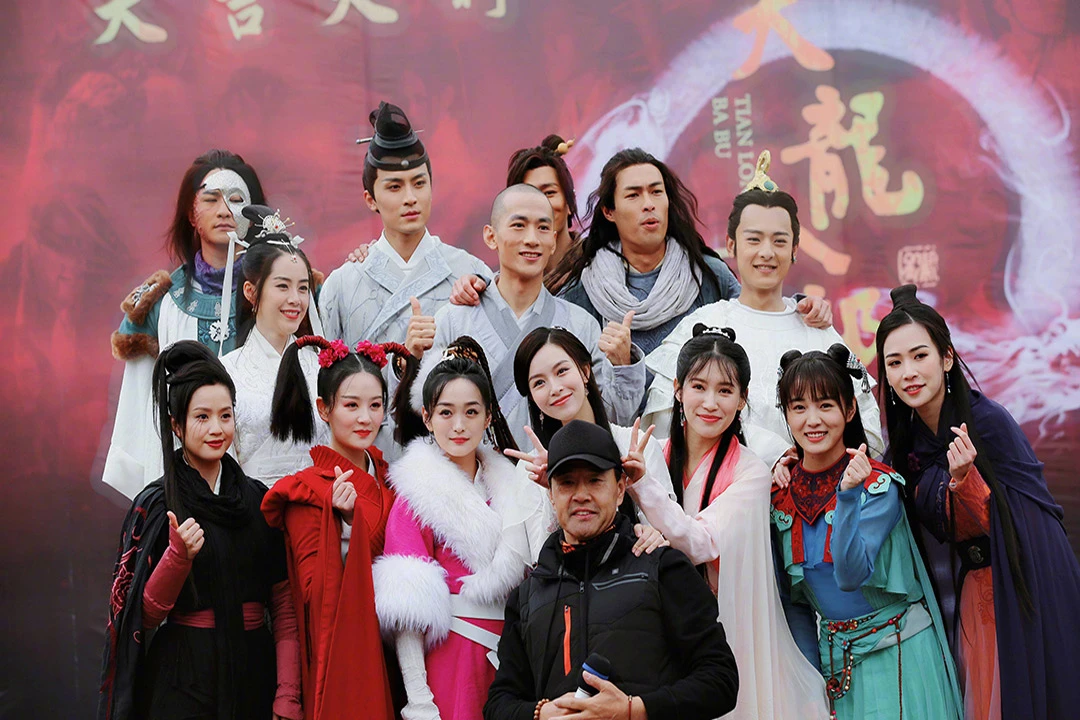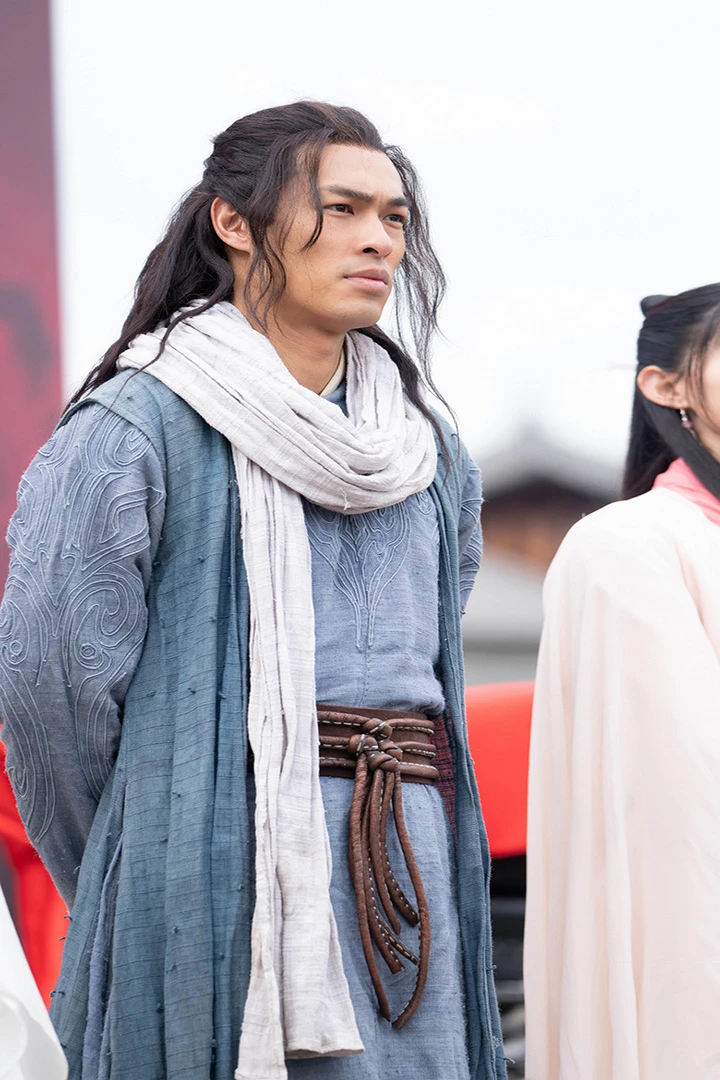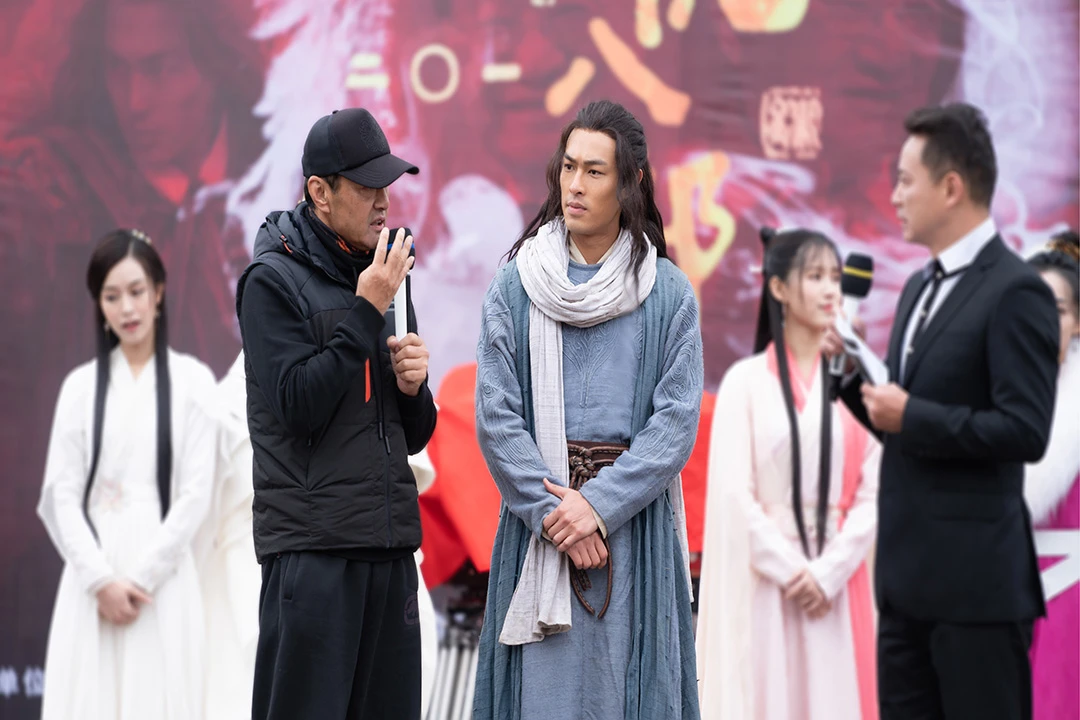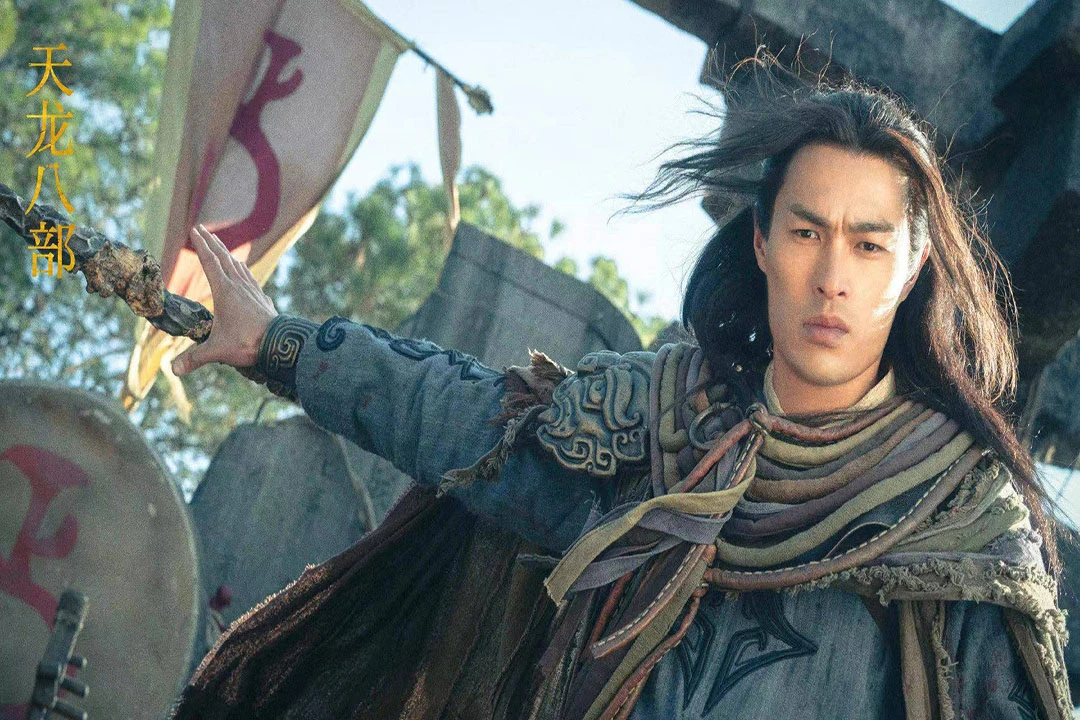In recent years, wuxia dramas have been on a downward trajectory in terms of both artistic quality and audience acceptance. The latest adaptation of “The Heaven Sword and Dragon Saber” shares a common problem with many other contemporary remakes of classic wuxia dramas: the blurring of the wuxia genre. Whether in terms of narrative techniques or costume and set design, wuxia dramas are increasingly resembling “xianxia dramas.” This trend towards xianxia elements in wuxia remakes ultimately leads to the decline of wuxia values.
In mid-August, the latest drama version of “The Heaven Sword and Dragon Saber” premiered on video platforms. Despite being supported by the timeless and classic original story and featuring promising young actors such as Ethan Juan and Janice Man, who have delivered impressive performances in recent popular dramas, this version of “The Heaven Sword and Dragon Saber” has faced unprecedented criticism from viewers. For instance, neither the actors’ performances nor the costumes and makeup have managed to portray unique and vivid character images.
The narrative rhythm, which was originally steady and gradual in the original work, has been disrupted by the appearance of almost all main characters at the beginning of the series. The narrative threads, which were sometimes independent and sometimes intertwined, have become chaotic due to the adaptation, greatly diminishing the narrative effect. Moreover, certain plot points, such as Duan Yu’s reaction upon first meeting Zhong Ling and Wang Yuyan, appear somewhat absurd and inconsistent with the characters’ identities and behavioral habits. On film review websites where viewer ratings are considered to be of reference value, this drama series has only managed to score less than four points, which can be described as “dismal.” The number of ratings is also significantly lower compared to other popular dramas airing during the same period.
Observing the evolution of narrative focus and costume and set design across different versions, the common problem shared by this version of “The Heaven Sword and Dragon Saber” and an increasing number of contemporary remakes of classic wuxia dramas is that the wuxia genre is becoming increasingly blurred. For the audience, it doesn’t “resemble” a wuxia drama and hasn’t “grown into” what a wuxia drama should look like. The series also doesn’t seem to have been filmed according to the traditional wuxia genre. Today’s audiences are faced with a relatively mature and professionalized film and television market, and the development and transformation of media have turned viewers into experienced and knowledgeable consumers. In other words, they have already developed a certain level of appreciation and have quite high demands for the professionalism of film and television dramas.
Firstly, a high-quality genre drama must have a captivating narrative that can withstand scrutiny. The “creative liberties” criticized by the audience have prevented this adaptation from reaching such a standard. For example, the plot arrangement in the original work was extremely ingenious, with the storylines of the three brothers being relatively independent and occasionally intersecting through Duan Yu’s connection, only formally merging together at the Shaolin Temple assembly. There were both suspense and gradually escalating conflicts. This version obviously failed to present this independence and intersection of storylines. Furthermore, there is Duan Yu’s reaction upon first meeting characters like Zhong Ling and Wang Yuyan. Although Duan Yu is a romantic gentleman, he was born into nobility and received an excellent education. His behavior in this version is completely inconsistent with the basic character setting and personality traits.
Apart from the narrative techniques, the costume and set design of the drama also seem somewhat incompatible with wuxia dramas, with an overall artistic style that has a strong resemblance to online games. The thick bangs, high cranial tops, large and simplistic headdresses, and modern-style clothing make the protagonists look more like characters from online games. This type of costume and set design seems more suitable for “xianxia dramas,” even reminiscent of the first-generation web drama “Go Princess Go.”
The xianxia-fication of wuxia dramas has led to the core elements of wuxia dramas—martial arts, patriotism, and chivalry in the Jianghu (martial arts world)—being glossed over. The blurring of the wuxia genre, as exemplified by the new “The Heaven Sword and Dragon Saber” and a series of other newly remade wuxia dramas, is actually a blurring between wuxia and xianxia. The “xianxia drama” genre first gained widespread attention with the premiere of “Chinese Paladin” in 2005, followed by the huge ratings successes of “Swords of Legends” (2014) and “Eternal Love” (2017). It is worth noting that the decline of remade wuxia dramas and the prosperity of xianxia dramas have occurred almost simultaneously.
Despite both being named after “xia” (chivalry), why are they two completely different genres? Wuxia stories are set in the Jianghu, outside the realm of the imperial court. The relationships between characters and the actions they take must conform to the natural laws and behavioral logic of the real world. Although the stories are fictional, they are always set against a real historical background, and the development of the story must be consistent with the characteristics of the time and the social reality. On the other hand, in the Jianghu, heroes and ordinary people live out and form a set of values and life principles that belong to the common people. Some of these values and principles have even emerged from nothing and gradually gained widespread recognition. The motives and results of those chivalrous and heroic deeds are extremely positive and constructive.
In contrast, xianxia dramas are derived from online literature or games, and the narrative does not necessarily have to conform to the logical requirements of real society. The purpose of the fantasy world is to create an alternate history, and whether they are deities, mortals, or time-traveling characters, they do not need to worry about whether their behavior is logically feasible in a historical context. In an alternate history, modern thinking can be used as a golden finger. Characters need to quickly advance the plot and upgrade their equipment, and the story needs to be quickly and satisfactorily concluded to complete the character’s growth. By constructing a fictional historical map and giving characters power-ups, the rules of reality are broken and corrected, allowing readers and viewers to gain a sense of accomplishment.
Perhaps it is because xianxia and the numerous dramas adapted from online novels have garnered so much attention that the xianxia-fication of remade wuxia dramas has led to the decline of wuxia values. Many remade wuxia dramas focus the narrative on the protagonists’ emotional lives, like “disguised” romance dramas, while the core values of wuxia dramas—martial arts, patriotism, and chivalry in the Jianghu—are glossed over.
At the same time, changes are occurring at the level of audience reception. What do viewers hope to see in wuxia dramas? In the past, we may not have been very clear about this question. Hong Kong and Taiwanese wuxia dramas were intensively introduced and broadcast in mainland China in the 1990s, causing a sensation and heated discussions. This period was also a time when the market was gradually being established and developed, and various industries were exploring their own development paths and rules.
Most people were still unaware of the changes they were experiencing, but at the same time, they were full of anticipation and confidence for the new life that would come with the new century, and they had the urge and confidence to construct. In wuxia dramas, they could see the principles of life among the common people. These principles were not Darwinian survival rules, but rather rules that guided them on how to become a better person in the jianghu. How to form and choose a team, how to allocate resources to achieve fairness, and how to live a life full of warmth on an emotional level—all these questions could find references in wuxia dramas.
However, today’s film and television audiences no longer seek answers to these questions or look for solutions to these problems in wuxia dramas. The convenience of obtaining information has made them more knowledgeable and clearer about the life and world around them. Compared to audiences decades ago who sought strength from the morality and warmth conveyed in wuxia dramas and had a romanticized imagination of life in the jianghu, the young people in front of the screen today are more familiar with the logic of the workplace—order tends to be stable, and rules are very clear. The basic background of xianxia dramas and online games is also like this. In a system built by programs, leveling up and fighting monsters can turn one into an omnipotent giant. Their desire to change their material lives and living conditions is not as strong as before, and their imagination of the outside world is naturally not as abundant as before.
Of course, this does not mean that the xianxia-fication and gamification at the creative level or the de-romanticization at the receptive level indicate that the imagined wuxia audience is becoming younger. As Jameson describes, contemporary culture exhibits a flattening characteristic. Xianxia-fied wuxia attempts to free people from the burden of history and aims to tell more modern stories. However, will wuxia truly be lost? The reality may not be so pessimistic. The resurgence of Y2K style and the nostalgia for cultural works from the turn of the century tell us that the public is collectively nostalgic for the confidence and constructive power that once existed. Whether there are new ways to film wuxia that align with the aesthetic psychology of the audience and how to activate the value of the wuxia spirit in contemporary social life are questions that we should continue to explore.




